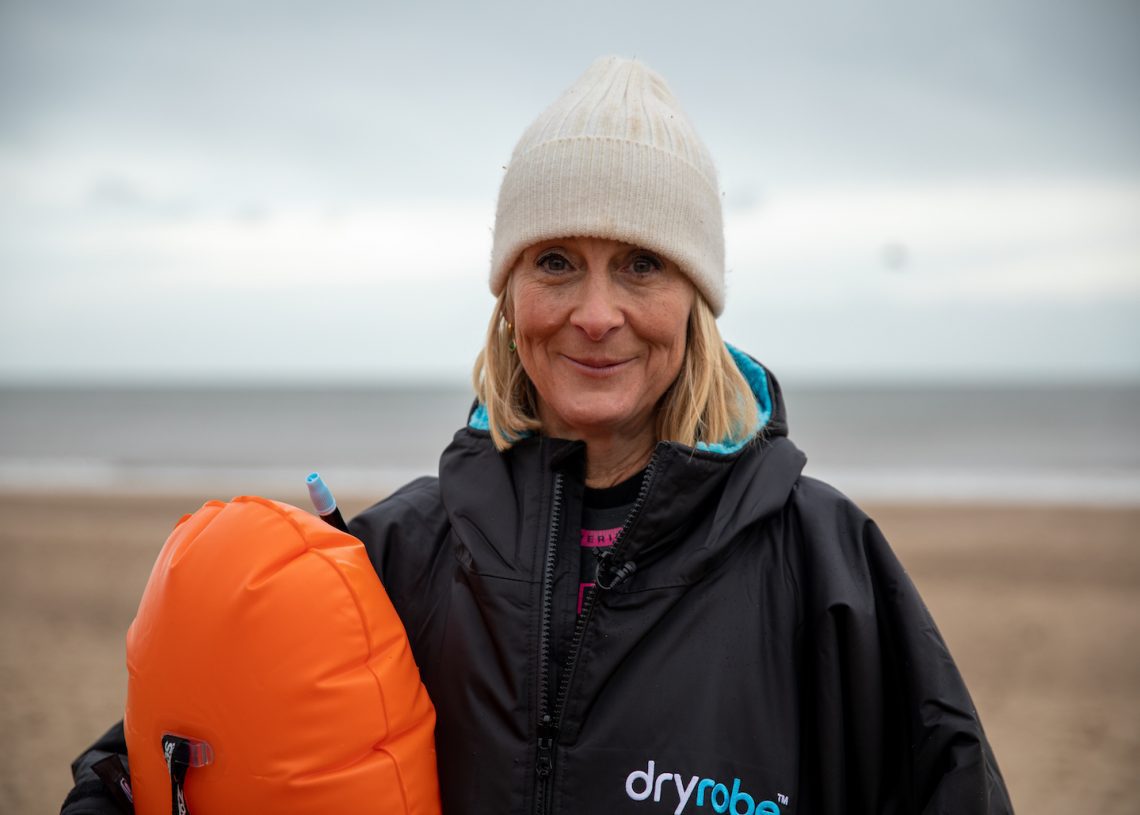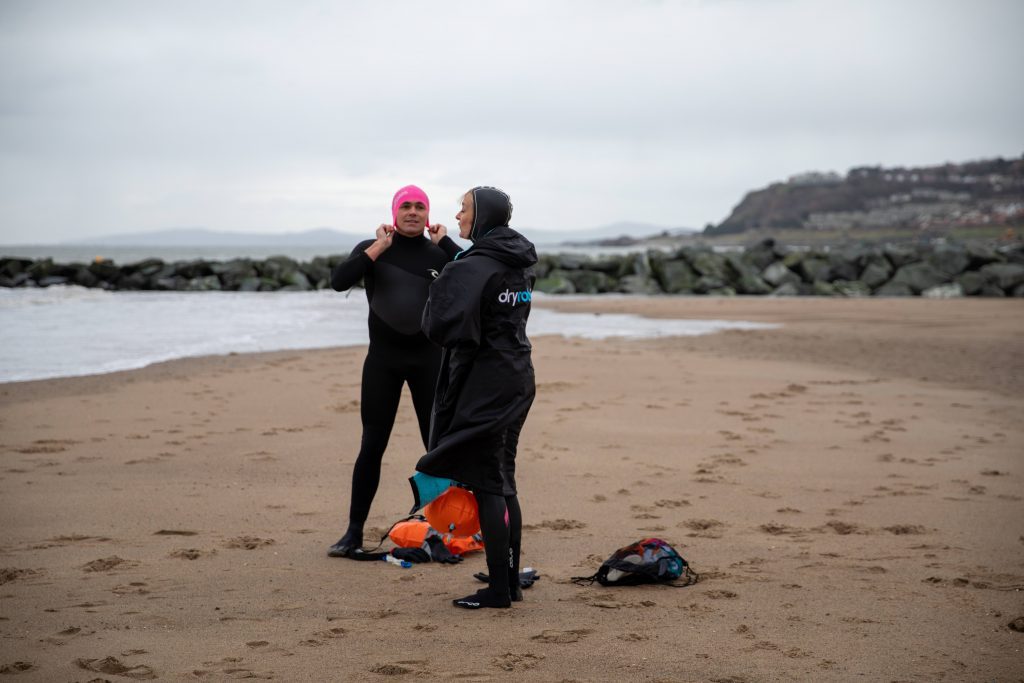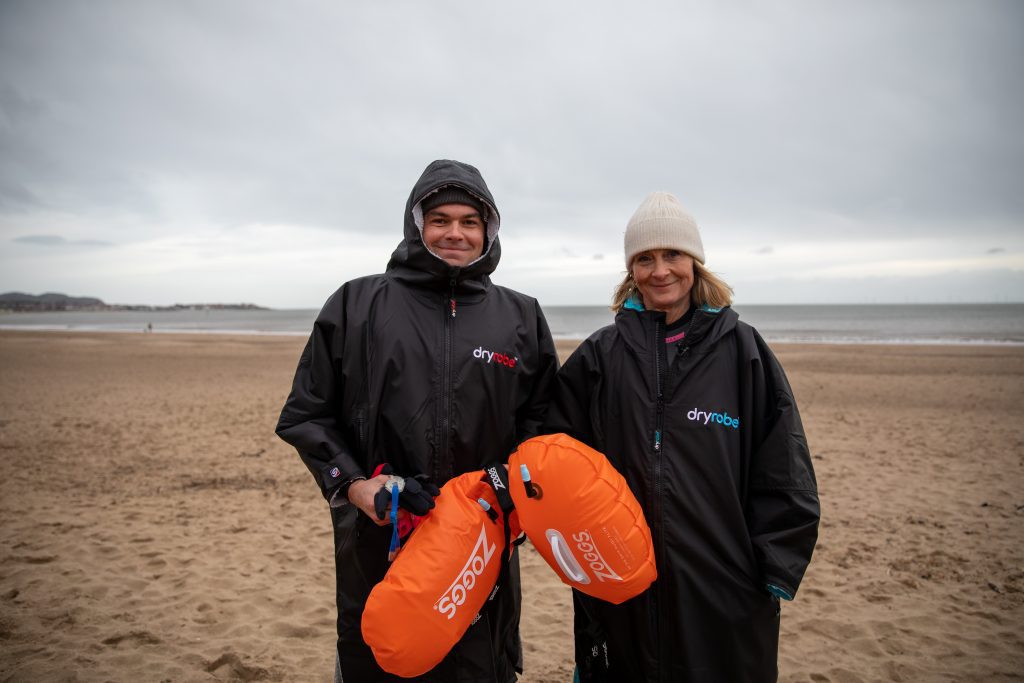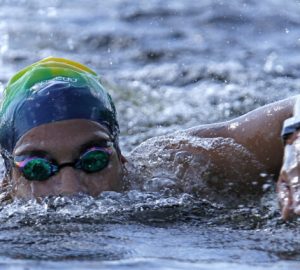
RNLI warns of cold-water swimming risks as sea temperatures drop
Former BBC Breakfast presenter and outdoor swimmer Louise Minchin has teamed up with the Royal National Lifeboat Institution (RNLI) to remind anyone planning a winter plunge to be aware of the risks as water temperatures reach their coldest in March
Louise Minchin has teamed up with the Royal National Lifeboat Institution (RNLI) to remind anyone planning a winter plunge to be aware of the risks as water temperatures reach their coldest in March.
Louise, a keen outdoor swimmer, was a fixture on the famous red sofa at BBC Breakfast for 20 years before leaving her presenting role in 2021.
Now the experienced triathlete has joined forces with the RNLI to help educate people on the precautions they can take to stay safe and have an enjoyable time when going for a swim or dip at the coast.
An escape for Louise
‘I love the sea, it’s my absolute passion,’ said Louise. ‘To go open water swimming allows me some time to myself with no interruptions – doing it safely though is my number one priority.
‘The kind of seas I love are the winter storms and the crashing waves, I just find them mesmerising to watch – but I certainly wouldn’t enter the water in those conditions. The power of the waves is just incredible and shouldn’t be underestimated.

‘People probably think that because I do Iron Man events I’m really tough and would go diving straight in, but there is no way I would do that. I’m a confident swimmer, but anyone can get in trouble, and it could happen when you least expect it.
‘When you first get in, the water temperature can take your breath away, even on the most beautiful, calm days. I just ease myself in gently, toes first, knees, hands, just everything really slowly. In some ways it makes it feel harder but that’s the way I always get in – it just eases my whole body in and allows me to enter calmly.
Be prepared
‘For a swim I always go prepared. I’ll wear a wetsuit, and my friends often comment how far away they can see me as I wear a brightly coloured swim cap and take a bright coloured float with me.
‘I never go alone, I either swim with somebody, or someone is ashore and knows my plan – and of course, if anything happens or I see someone else in trouble I’d call 999 to get help underway.’

Nick Ayers, RNLI Water Safety Lead said: ‘It’s great to have an experienced swimmer like Louise working with us and sharing her own experiences and best practices on how to stay safe when heading into cold water for a swim or dip.
‘Already this winter we’ve seen swimmers get into difficulty requiring our RNLI lifeboats to launch to their assistance.
Rescue at sea
Two swimmers were saved in December by RNLI lifeboats in separate incidents, both suffering from effects of the cold water.
On December 10, Walmer inshore lifeboat rescued a swimmer off the Kent coast more than a mile and a half from where they initially entered the water. The man was found floating on their back, unresponsive but breathing.
While in Whitby, North Yorkshire, just two days after Christmas, a man was in the water for 90 minutes before being rescued.
Cold sets in
The man rescued by Whitby RNLI said: ‘I realised that I was quite far out. I swam towards shore for 20 minutes but I didn’t seem to be getting any closer. It’s then that I started to panic.
‘Although I was wearing a wetsuit, I was getting colder and colder, and it was then that I thought – “this is it”. I really didn’t expect to finish my life here. I knew I couldn’t hold on for much longer.
‘When I saw the lifeboat approaching, I was so relieved, I just couldn’t believe it.
‘Despite having 20 years’ experience of open water swimming, things can change so quickly, and you can get caught out. I will be forever grateful to the RNLI for saving me that day.’
Risks of cold-water shock
Nick said: ‘Cold water shock is a very real danger for anyone entering water that is 15°C or below while hypothermia can also pose a risk, especially at this time of year when temperatures continue to drop. Sea temperatures around the UK and Ireland will average just 6 to10°C around March when they reach their coldest.
‘We’re asking everyone to be aware of what they can do to keep themselves and others safe and to respect the Water.
‘The effects of cold water, combined with weather conditions and any personal health issues should be taken seriously before venturing in.
Take precautions
‘There are a number of precautions you can take to help ensure you have an enjoyable and safe time. Avoid swimming alone, consider going with others or joining a group so you can look out for each other.
‘Think about the depth of water and if you can, stay in your depth. Wear a bright swim cap and use a tow float to make yourself visible to others. For those venturing in for the first time, we’d recommend visiting a health care professional before you go in.
‘The most important thing to remember is if you are in any doubt, stay out of the water and if you or anyone else does get into trouble in or on the water please call 999 or 112 and ask for the Coastguard.
‘Even the well prepared can find themselves in difficultly but having the correct knowledge and equipment can save lives.’
RNLI safety tips for taking a winter swim or dip:
Before you go:
- Cold water immersion does have risks, speak to doctor first, especially if you have a health condition.
- Assess the conditions before getting in. If it is too rough for swimming, don’t get in.
In the water:
- Wear a wetsuit and brightly coloured swim cap, take a tow float and a means of calling for help with you.
- Acclimatise slowly to reduce the risk of cold-water shock.
In an emergency:
- Float to live if you get into trouble – lean back in the water, extending your arms and legs to gain control of your breathing
- Call 999 or 112 and ask for the Coastguard – if you get into difficulty or see someone else in trouble call for help immediately.
Read more guidance on cold water swimming.








